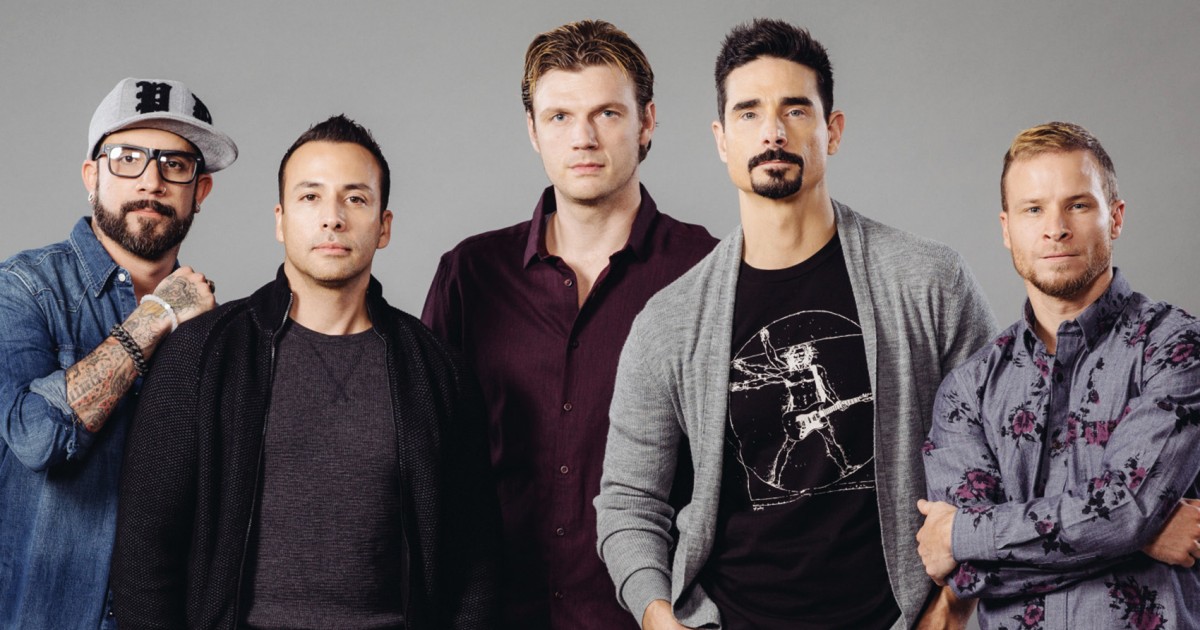

“That’s when I realized how powerful Lou was.”Soon, Pearlman would have the Backstreet Boys, and their rivals ‘NSync, on posters on the walls of teenagers’ bedrooms around the world. But, you probably wouldn’t believe that currently, the most controversial member of the Backstreet Boys isn’t even one of boys at all.They had been driving “fast like, you would have gone to jail for fast,” Dorough would later recall in a documentary about the beloved ‘90s band.Pearlman, who died in 2016, was the man credited for kicking off the boy band boom in the '90s, starting the careers of super-groups like 'N Sync, Backstreet Boys, LFO and O-Town.They told the officer where they were coming from: the home of Lou Pearlman, a business executive who had made his name on blimps and airplanes and was now diversifying his interests with the start of a boy band he hoped would woo the world of screaming teen girls (and their parents’ wallets).As soon as the teens mentioned Pearlman’s name, the officer let them go without penalty.“I knew at that point,” Dorough said. Yes, I’m mostly looking at you, Nick. It can also lead to the kind of pain inflicted on the ears after hearing a Backstreet Boys song on the radio.Considering the fact that the Backstreet Boys have been a group for almost 30 years now, they are certainly no strangers to tabloids, rumors and controversies.
In reality, it didn’t exist.“He could make you believe anything. He promised that the investment he was offering was federally insured and guaranteed to do well. Though he wasn’t investigated until 2006, Pearlman began his $300 million Ponzi scheme in the early 1990s.He had always been masterful at convincing well-off people to invest in his ventures: first helicopters and blimps, then stock in his company. The cause of his death is not yet known.He will be remembered more for the depth of his success in scamming than his acumen in the music business. There were 13 years left on his sentence.
Then he reportedly used its earnings to start rival bands: ‘NSync, LFO, Take 5, O-Town and Natural.After the FBI discovered that Pearlman was cheating his investors, almost all his bands sued him for fraud and misrepresentation. Initially, he paid them $75 a week, according to the band’s documentary.When they took off with “Quit Playing Games (With My Heart),” Pearlman named himself the “sixth member” of the band. They were the Backstreet Boys, named after Orlando’s Backstreet flea market. His search for talent lead him to Littrell, Dorough, Nick Carter, Kevin Richardson and A.J. He put an ad in the Orlando Sentinel seeking young male singers.
The mother of Nick and Aaron Carter told the magazine, “I tried to expose him for what he was years ago. One of the managers for the Backstreet Boys said Pearlman’s entrance into the music business was an excuse for him to hang around with good-looking teens. But Vanity Fair spoke to a former assistant who said Pearlman regularly touched and groped him. I knew then that I was gay, so I kind of related to him in a way.”Bass said the touching never went beyond that. “It didn’t really bother me. A 2007 Vanity Fair profile painted Pearlman as a “sexual predator.”For years, some had raised eyebrows at the way the business executive was surrounding himself with young, attractive male teenagers.In an interview with Billboard, ‘NSync member Lance Bass recalled how Pearlman made a habit of feeling his arms and muscles.“Even as a young guy, I assumed that Lou probably was gay,” Bass said.



 0 kommentar(er)
0 kommentar(er)
